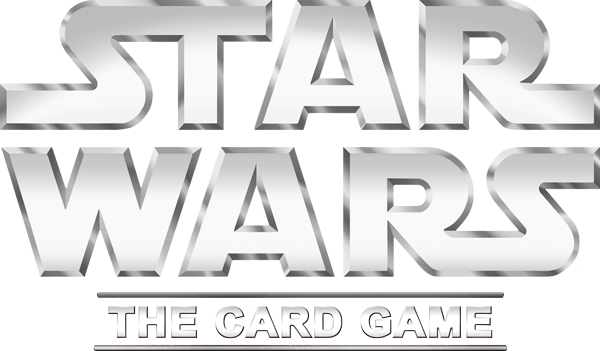
A Twisted Plan
A Guest Article on Twist of Fate in STAR WARS (TM): The Card Game

Star Wars™: The Card Game is made up of hundreds of unique cards, divided across two sides of the Force and six affiliations. Many of these cards have distinctly shaped the way the game is played, but has one card had a greater influence than any other? In today’s guest article, Zach Bunn asks that question and offers his thoughts on one card’s effects on every game of Star Wars: The Card Game.
Zach Bunn on Twist of Fate
What would you choose as “the most important card” in the Star Wars: The Card Game? Maybe you’d choose Sleuth Scout (Edge of Darkness, 340) for its meta-defining ability, or Orbital Bombardment (Core Set, 103) for the way it shifts the dark side’s endgame. The Defense of Yavin 4 (Core Set, 138) isn’t a bad pick either, since it gives speed and efficiency to an entire deck.
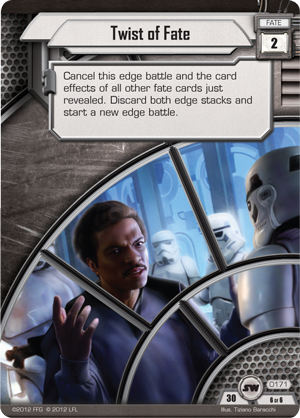 There are certainly more than a few fantastic cards in the game, and all of the above are worthy picks. But when we’re discussing the most important card in the game – a quite prestigious title – I can’t get away from a relatively simple one that impacted the game since the beginning: Twist of Fate (Core Set, 171).
There are certainly more than a few fantastic cards in the game, and all of the above are worthy picks. But when we’re discussing the most important card in the game – a quite prestigious title – I can’t get away from a relatively simple one that impacted the game since the beginning: Twist of Fate (Core Set, 171).
Twist of Fate is a straightforward card. It cancels the current edge battle and forces players into a second edge battle. So what is it that makes Twist of Fate so important?
To understand the power of Twist of Fate, you have to also understand the power of edge battles. The edge battle is one of the most critical components to winning or losing a game of Star Wars. If you’ve played a few games, you should understand the importance of edge battles for determining the outcome of a game.
But Twist of Fate isn’t about winning edge battles. Let me say that again. Twist of Fate is not about winning edge battles.
Twist of Fate is about card advantage.
Two Steps Ahead
In my first article posted to the FFG website, The Flow of the Force, I discussed the importance of cycling through your deck and not holding onto cards that you know you won’t be using. Twist of Fate doesn’t get you extra cards, but when used ideally, it costs your opponent cards.
Imagine a typical scenario, where your opponent attacks and you block. You each have three cards in your hand. They play a card into the edge stack. You play a Twist of Fate. Even if they predict your Twist of Fate and pass, a new edge battle begins, forcing them to either put another card into the edge stack or automatically lose the edge battle.
If they don’t call your Twist of Fate and put a second card into the edge, you can pass, and they have now spent two cards and will need to spend their third just to have a chance of winning the edge battle.
This accomplishes so much:
- Your opponent has less cards for more offensive edge battles on their turn
- Your opponent has less cards for defensive edge battles on your turn
- Your opponent now has less options in hand
- You now have a better chance of winning the current edge battle, if desired
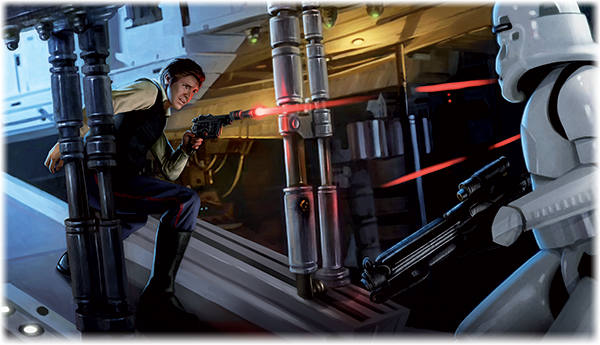
That was a defensive example, but even on offense having a Twist of Fate can be big. Effective offense in this game is predicated on your ability to divide attacks to force your opponent to give you one of a few determined outcomes.
Perhaps you want to obtain the Balance of the Force. Maybe you send an initial attack that won’t be as damaging as your second attack, but by attacking in this way, you force your opponent to choose which attack to block. Ideally, you should be forcing your opponent to give you some, if not all, of the outcomes you want on a turn. Managing the cards in your hand and your opponent’s hand is a skill that leads to huge turns.
If you have a Twist of Fate, you can often have your cake and eat it too. If your opponent only has a few cards in hand, you can often attack in such a way that should they attempt to stop your initial attack, you’ll empty their hand and have your way with any further engagements.
While Twist of Fate can win you an edge battle, it ought to lead to card advantage. But even with all of this, Twist of Fate’s largest impact is deeper than winning edge battles and gaining card advantage.
Unseen Effects
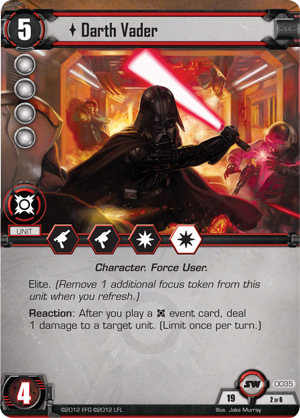 Once you pass the new player experience level and start anticipating Twist of Fate, the effect this card has on the game grows immeasurably. The most important cards aren’t really the ones that need to resolve or trigger. Rather, the most important cards are the ones that alter how the game is played regardless of whether or not they are ever seen. Sometimes, these cards might not even be in a player’s hand or deck!
Once you pass the new player experience level and start anticipating Twist of Fate, the effect this card has on the game grows immeasurably. The most important cards aren’t really the ones that need to resolve or trigger. Rather, the most important cards are the ones that alter how the game is played regardless of whether or not they are ever seen. Sometimes, these cards might not even be in a player’s hand or deck!
For example, we can all agree that Darth Vader (Core Set, 35) is extremely powerful. However, his effect on how the game is played when he isn’t on the board is minimal at best. The effect that Twist of Fate always causes, purely from existing, is incredible.
Consider for a moment the example I used earlier, but this time you’re the attacker. You dropped a single card into the edge battle and your opponent followed suit. What do you do? If you play a second card and they played Twist of Fate, you’re in a really bad position. With no other knowledge, this might cause you to pass and hope the one card wins you the edge battle. But what if your opponent’s single card was a single card with a high Force icon count? Twist of Fate single-handedly forces players to approach every edge battle differently.
Investigating Objectives
Without looking, how many objectives for light and dark sides contain Twist of Fate? The answer might surprise you.
Currently, the dark side has six objectives and the light side has five objectives with Twist of Fate. What’s most interesting to me is the mental impact this card has on every top-level player I’ve played against and discussed the game with, even though it’s in relatively few objective sets.
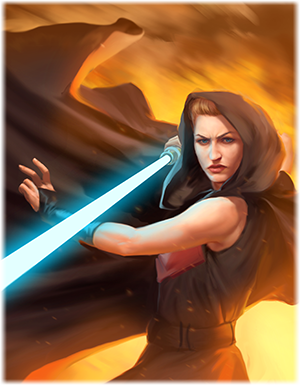 Below are the objective sets that contain Twist of Fate:
Below are the objective sets that contain Twist of Fate:
Light Side
- The Secret of Yavin 4 (Core Set, 144)
- Fleeing the Empire (Core Set, 56)
- Hit and Run (Core Set, 68)
- Asteroid Sanctuary (Edge of Darkness, 331)
- Forward Reconnaissance (Heroes and Legends, 501)
Dark Side
- Counsel of the Sith (Core Set, 27)
- Defense Protocol (Core Set, 40)
- Reconnaissance Mission (Core Set, 127)
- The Killing Cold (The Desolation of Hoth, 190)
- Lucrative Contract (Assault on Echo Base, 271)
- The Tatooine Crash (Edge of Darkness, 380)
For me, knowing this list is extremely important. By the middle of a game, when edge battles get absurdly important, I ought to know most of the objectives in my opponent’s deck. Knowing the odds of them having a Twist of Fate can open up winning opportunities that I would overlook if I assumed my opponent had the cards to shut me down.
More importantly, this illustrates a grander point. The mental effect we allow important cards to have on us can be negative. There’s a reason power cards have the mental impact that they do, but it’s important to keep an open and observant mind and remember that your opponent doesn’t always have the answer. Full awareness in these moments allows great players to make game-winning plays.
Until next time, may the Force be with you.
Zach Bunn
Thanks, Zach!
Zach Bunn is a Star Wars fanatic, a lead member of Team Covenant, and a member of the winning team from the Star Wars multiplayer tournament held at Worlds. In coming weeks, stay tuned for more Star Wars guest articles from Zach and other writers!
…
